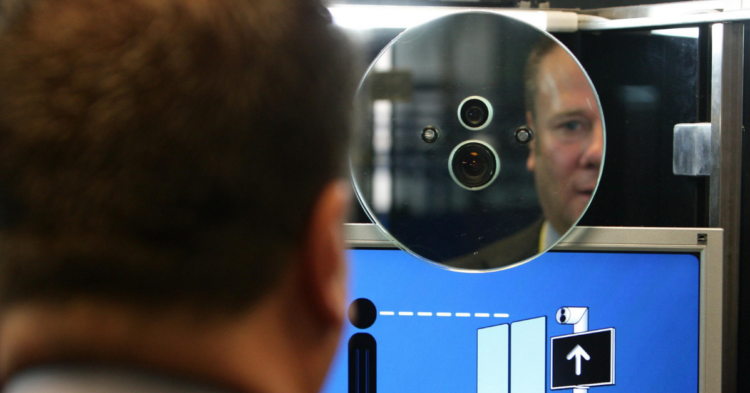Just about everyone’s familiar with the plot of George Orwell’s 1984 : basically, in a dystopian future, cameras will be everywhere, thought police will monitor you and privacy will go by the wayside.
We’re not there yet , but recent news out of Washington suggests that we’re getting a little closer to Big Brother watching us.
Cameras that use biometric data are everywhere.

In many international airports, the process of going through customs has been expedited by self-serve kiosks that process your information and scan your face to better allow customs agents to process you.
The next big step will roll this out for all international travelers.

Data leaked exclusively to Buzzfeed shows that facial recognition cameras will be used to scan the face of each and every international traveler at the top 20 U.S. airports by 2021.
The move is being fast-tracked.

While it isn’t in place yet, President Trump laid the groundwork for this move two years ago when he issued an executive order to deploy biometric facial recognition technology at airports.
It falls under a federal agency’s umbrella.

The Department of Homeland Security, which already has a heavy presence at airports, will be tasked with initializing and monitoring the facial suveillance system. They only have two years, so work will move swiftly.
U.S. citizens will have their faces scanned.

It won’t affect domestic travelers, so you don’t have to worry about Big Brother monitoring your flight from Newark to Miami. But the system is designed to monitor all international travelers, Americans included.
Which airports are affected?

They’re the busiest 20 airports, so chances are good you’ve been through at least one of them before. Airports in Atlanta, Los Angeles, Chicago, New York, Las Vegas and more will be affected.
But…my privacy!

It’s true that you pretty much give up your right to privacy at airports anyway, with their searches and vetting. But still, this move seems like a step too far for some people.
There are some valid criticisms.

While something like this seems like an inevitability, the fact that it’s being so heavily fast-tracked means that stuff like proper vetting and regulatory safeguards falls by the wayside.
How will the data be used?

Well, that’s pretty broad. The leaked documents show that there were zero limits on how airlines can use the data gleaned from the biometric face scanners. They can use it however they see fit.
There are lots of unknowns.

Unsurprisingly, there really isn’t any transparency around this move, which makes privacy advocates all the more concerned. Federal agencies are pretty vague about the details, and they certainly aren’t answering questions.
It’ll affect millions of passengers a week.

More than 100 million passengers depart the U.S. for international destinations every week. If things go as planned, each and every one of them will have their face scanned before leaving the airport.
How long do they keep the data?

Customs says they’ll retain photos for up to two weeks for non-U.S. citizens, apparently to provide the system with data to make it more accurate in the long run.
Was the public consulted?

Nope! Washington actually has a policy in place where stuff like this should be open to public feedback before it’s rolled out. But in this case, no such process occurred.
We’d better get used to it.

Privacy concerns or not, it seems that this is the way the winds are blowing. How do you feel about the government adding your face to its registry? Let us know in the comments!



















































